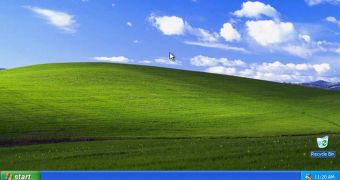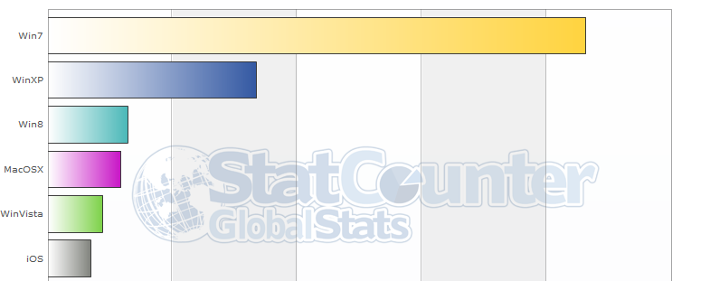Microsoft’s efforts to move users from Windows XP to a newer platform are making the headlines pretty much every day, but not everybody seems to be getting the message.
Even though Windows XP will go dark on April 8, 2014, the ancient operating system is still installed on more than 30 percent of the computers worldwide, which is enough to make it the second top choice for users across the planet.
The reasons why Windows XP remains such a popular operating system 11 years after launch are pretty simple. Windows XP is not only very fast, but also stable and has exactly the features users need.
But let’s have a look at market statistics to see if Microsoft indeed has a chance to get rid of Windows XP.
Net Applications said that in October 2013 Windows XP had a market share of 31.24 percent, which places it on the second position of the podium after Windows 7 (46.42 percent). While that’s indeed impressive considering the OS will be discontinued in April, it’s also a sign that Microsoft’s latest offering isn’t at all appealing to users.
Microsoft started its “ditch Windows XP” campaign this year, but the results are not at all breathtaking. Windows XP started the year with a market share of 39.51 percent and gradually lost users every month. The biggest drop was experienced in August 2013 when it declined from 37.19 percent to 31.42 percent.
If the same descending trend is maintained, Windows XP is likely to have a market share above 20 percent by the time its retirement comes. Microsoft wants only 13 percent of the users to continue running this OS by April.
StatCounter, on the other hand, has pretty different market share stats, but the rankings are mostly the same. Windows 7 leads the charts with 51.76 percent, while Windows XP comes second with 20.06 percent. Windows 8 is still far behind with 7.68 percent.
At this point, it’s pretty obvious that Microsoft has no chance to succeed in killing Windows XP. According to some sources, the company might even discontinue Windows XP support for Security Essentials, thus trying make its ancient OS as vulnerable as possible.
And still, third parties will always be there to lend users a hand. Especially when it’s all about 30 percent of the desktop market.

 14 DAY TRIAL //
14 DAY TRIAL // 
